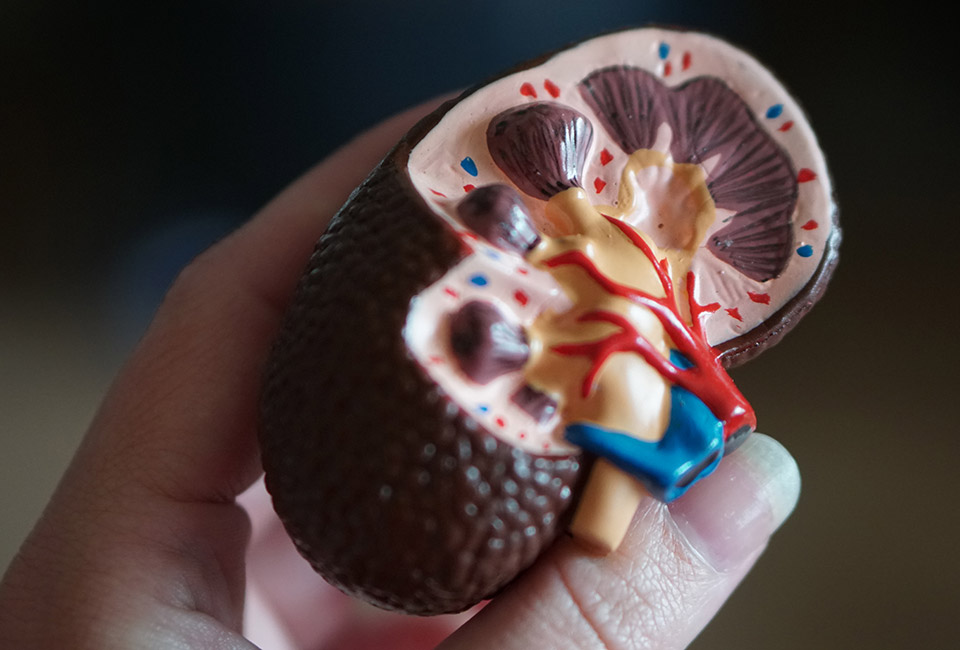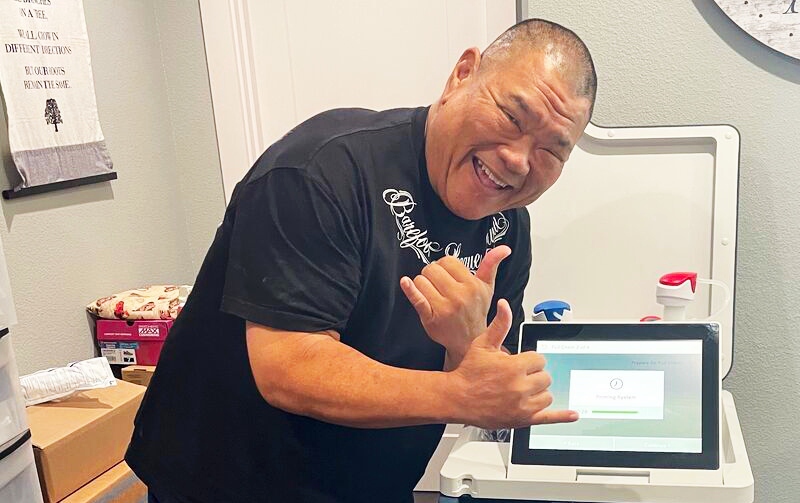Are You Kidneying Me? 8 Kidney Disease Myths and Facts

Right now, with every heartbeat, every second of every day, there are incredible things going on inside your body. One hard-working organ that you may not give much thought to is your kidneys.
Did you know that healthy kidneys filter about 150 quarts of your blood and remove about half a gallon of extra fluid and waste products, every day? Are you “kidneying” me? That’s amazing!
If you develop kidney disease, these critical organs don’t work properly, and over time you can develop kidney failure, also called end-stage renal disease (ESRD; also referred to as end-stage kidney disease, or ESKD).
Here’s the problem: kidney disease can sneak up on you. This has led to misconceptions about risks, progression and life-preserving treatments for chronic kidney disease (CKD), including dialysis and transplant. Here, we dispel a few common myths you might have heard:
MYTH #1: You will know if you have kidney disease.
FACT: Unfortunately, most people who have kidney disease don’t know it. Why not? Because in the early stages of kidney disease, most people do not have any symptoms. Symptoms may not appear until kidney disease is in the advanced stages. The best way to find out if you have kidney disease is to get tested—and once you are diagnosed there are many steps you can take to reduce the progression of the disease. (Source: National Kidney Foundation)
MYTH #2: If you are at risk for kidney disease, there is nothing you can do about it.
FACT: Not everyone who is at risk will get kidney disease. You can help protect your kidneys. Eat healthy, get regular exercise, control blood pressure and blood sugar, keep a healthy weight, quit smoking, stay well hydrated, and don’t overuse pain medications like ibuprofen. All these steps will help you keep your kidneys healthy and lessen your chances of getting kidney disease. Be sure and talk to your doctor about your risks. (Source: National Kidney Foundation)
MYTH #3: The only treatment for kidney disease is dialysis.
FACT: Not everyone with kidney disease needs dialysis. Kidney disease is a slowly progressive process. If you know the cause, it is more likely that something can be done to slow or prevent it from getting worse. In its early stages, it is usually managed with exercise, diet, and medication. With this approach, most people can slow or stop the progression of kidney disease and enjoy a normal lifestyle. That’s why it’s so important to find and treat kidney disease early. Dialysis or a kidney transplant is only needed if your kidney disease gets worse and progresses to kidney failure. (Source: National Kidney Foundation)
MYTH #4: Dialysis is a death sentence.
FACT: No, dialysis is a life sentence. Many patients on dialysis still enjoy many of the things they did prior to starting treatment like working, traveling, and enjoying time with family. Particularly those patients that choose home dialysis. When you, your family and doctor decide that it is time for you to undergo dialysis what you all are saying is that you want to live your life and feel better than you do with late-stage chronic kidney disease. (Source: National Kidney Foundation)
MYTH #5: Kidney disease only affects older people.
FACT: While CKD is more common in people aged 65 years or older (38%), it can affect everyone: people aged 45-64 years (12%) or 18-44 years (6%). (Source: Centers for Disease Control and Prevention)
MYTH #6: A kidney transplant will cure chronic kidney disease.
FACT: A misconception is that a kidney transplant acts as a cure for chronic kidney disease. Actually, it is more a replacement. Kidney disease can be slowed, but not completely cured, through medication or lifestyle changes. A kidney transplant is a type of treatment that gives the patient a healthy kidney to replace some of what was lost when their own kidneys failed. Transplant can significantly aid a patient’s overall condition, improve and extend life, and eliminate the need for dialysis.
The average kidney transplant has a lifetime of about 13 years, although some can last more than 20 years, particularly if from a living donor that is a good match. Deceased donor kidneys typically last between 8 and 12 years. Regardless of which donor is used, patients will need medications to prevent their body from rejecting the transplant, known as immunosuppressive medication, for the duration of their transplanted kidney’s life. (Source: Texas Kidney Institute)
MYTH #7: Someone with CKD should drink lots of water.
FACT: Drinking lots of water might seem like a good idea, and of course it is important to get enough fluids for your body’s health. But for those with CKD, depending on the cause and severity, too much fluid intake can cause edema, or swelling, as well as high blood pressure and breathing problems since their kidneys may not be able to remove the extra water. Chronic kidney disease patients should talk with a doctor and dietitian about the correct, healthy amount of fluid intake for their level of kidney function. (Source: Texas Kidney Institute)
MYTH #8: Kidney disease is unpreventable.
FACT: Many people have the misconception that kidney disease is caused by genetics and thus unpreventable. However, in many cases, kidney disease can be a preventable illness.
One of the primary preventative measures that reduces the risk of kidney disease in adults is maintaining an active and healthy lifestyle to reduce the risk of diabetes and high blood pressure. Some generally healthy habits are exercising regularly, avoiding smoking, maintaining a healthy weight, reducing the amount of salt in your diet and moderating alcohol intake.
Those with the diagnosis of high blood pressure or diabetes who are at risk of kidney disease may need to consider medical treatment in addition to healthy lifestyle choices. Medications like ACE Inhibitors, diuretics, Angiotensin receptor blockers and some medications for blood sugar reduction may help treat high blood pressure or diabetes and have the added benefit of slowing kidney disease progression. (Source: Texas Kidney Institute)
* Disclaimer:
The information, including but not limited to, text, graphics, images and other material contained on this website are for informational purposes only. No material on this site is intended to be a substitute for professional medical advice, diagnosis or treatment. Always seek the advice of your physician or other qualified healthcare provider with any questions you may have regarding a medical condition or treatment and before undertaking a new healthcare regimen, and never disregard professional medical advice or delay in seeking it because of something you have read on this website.

